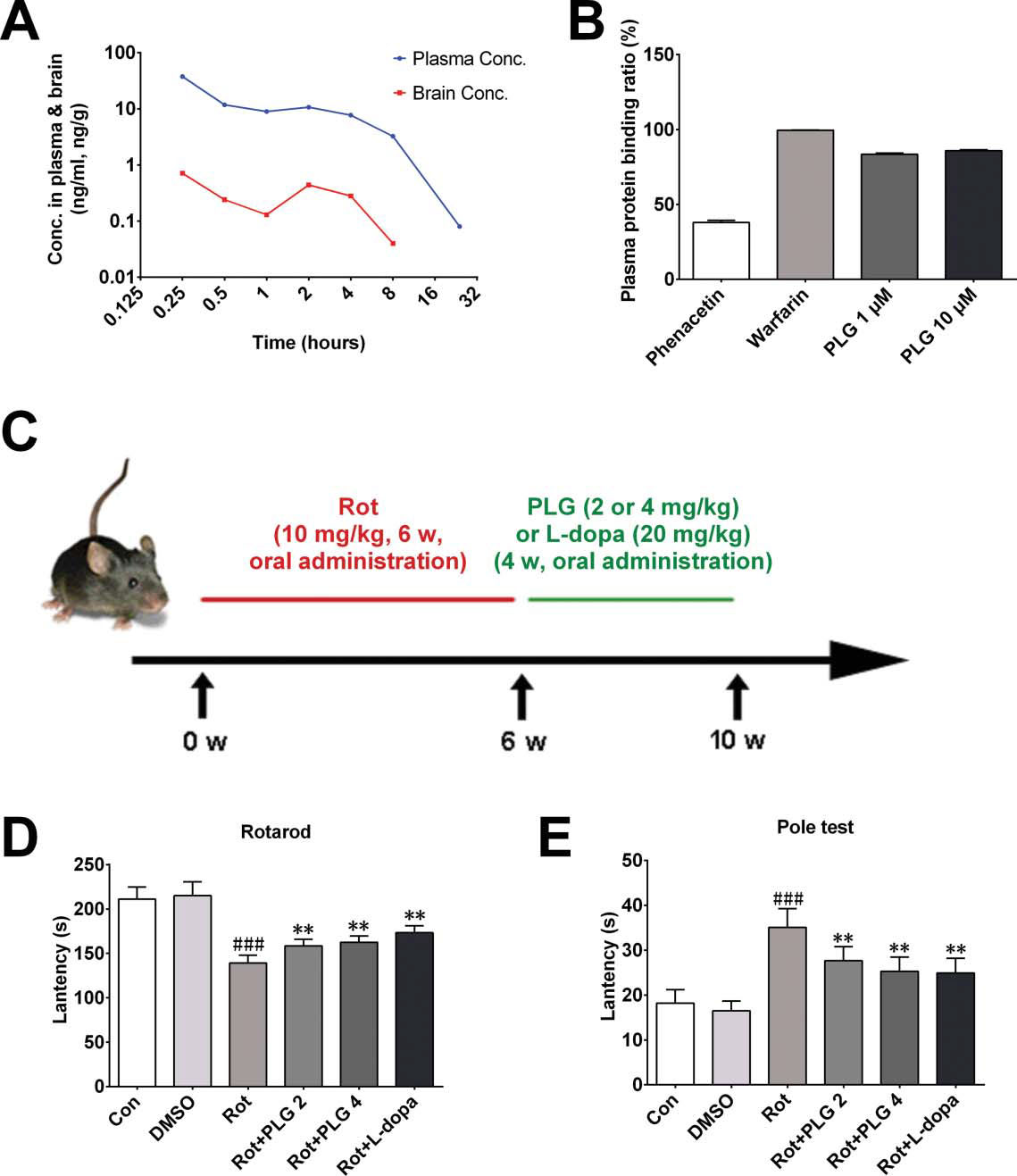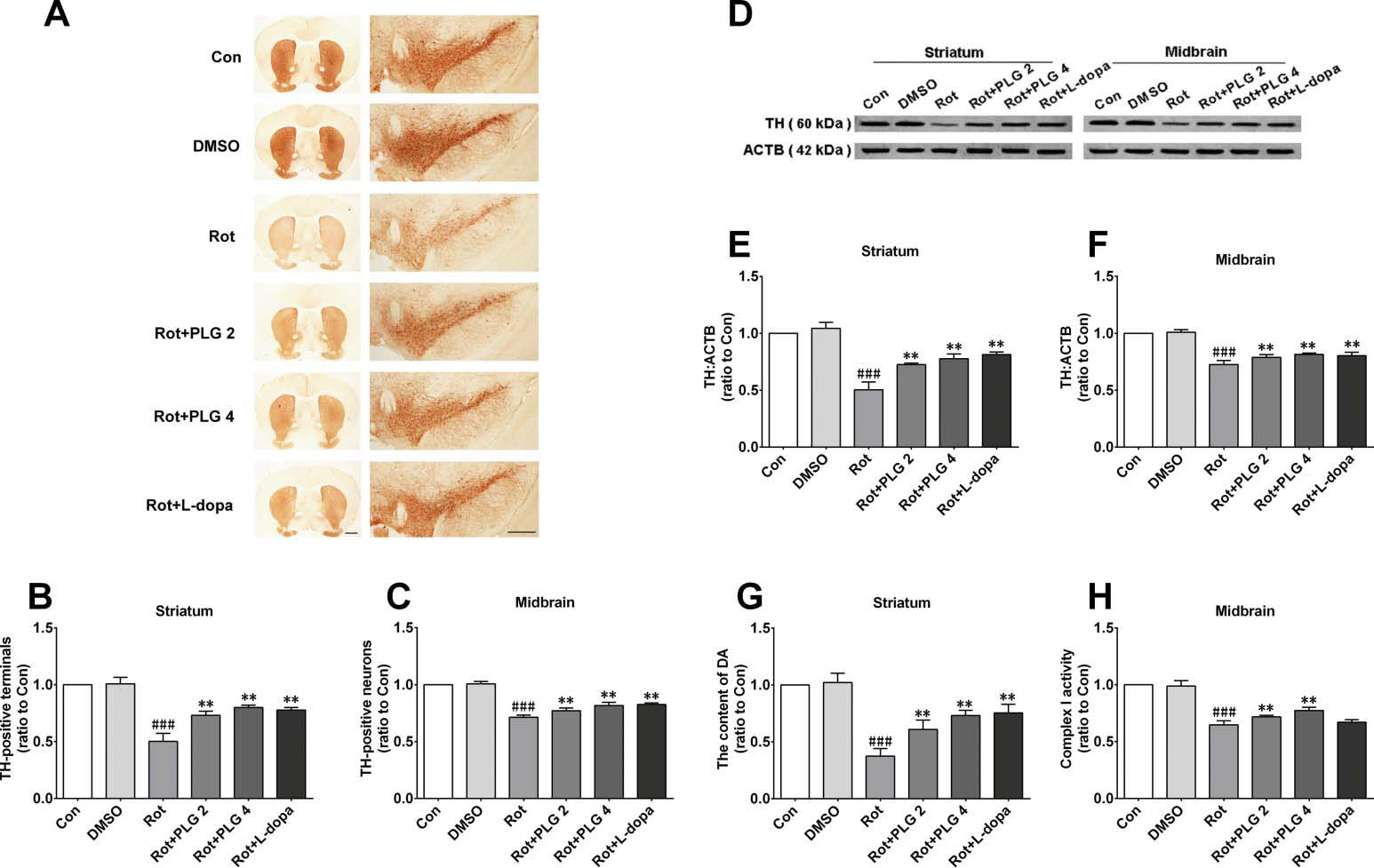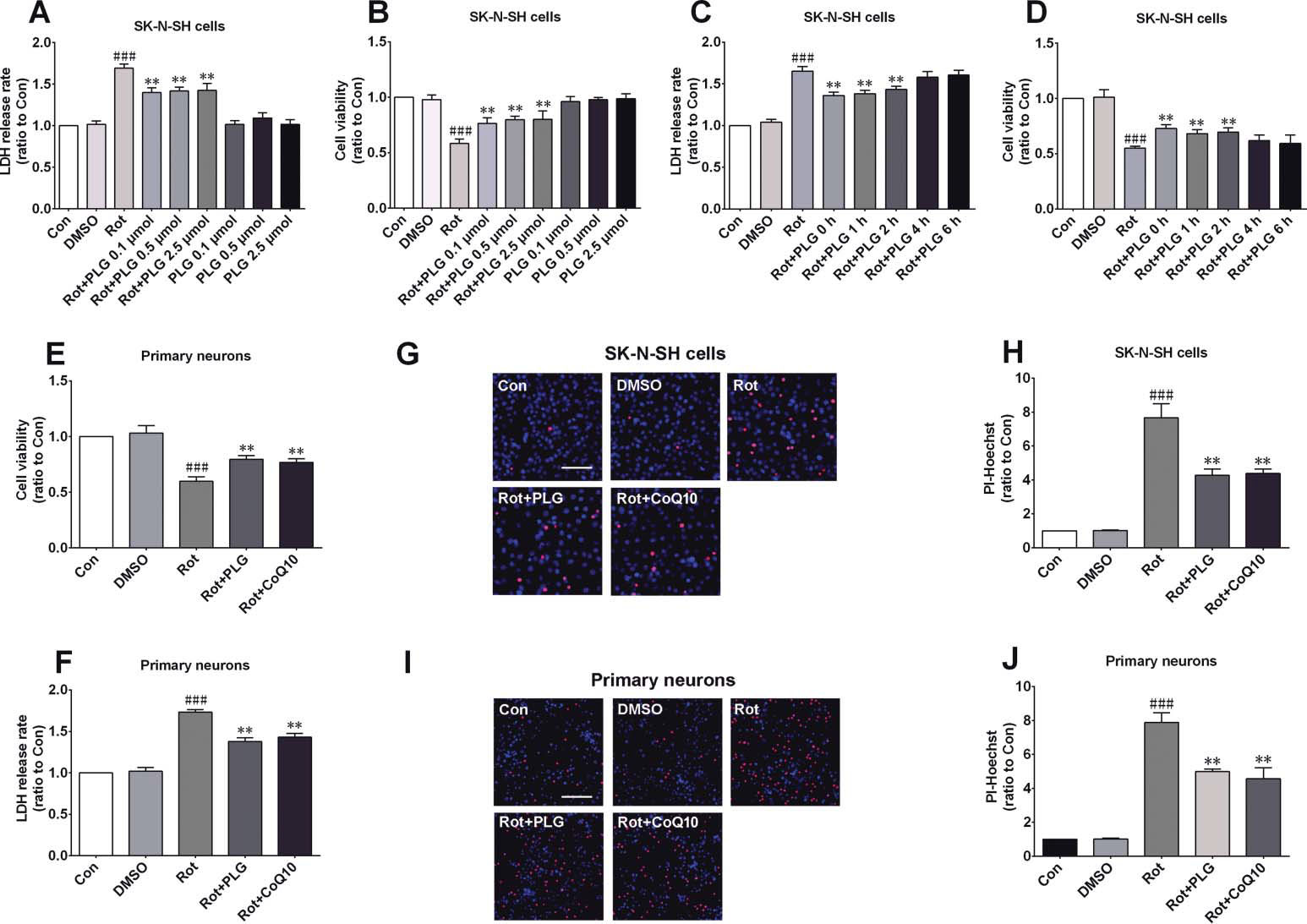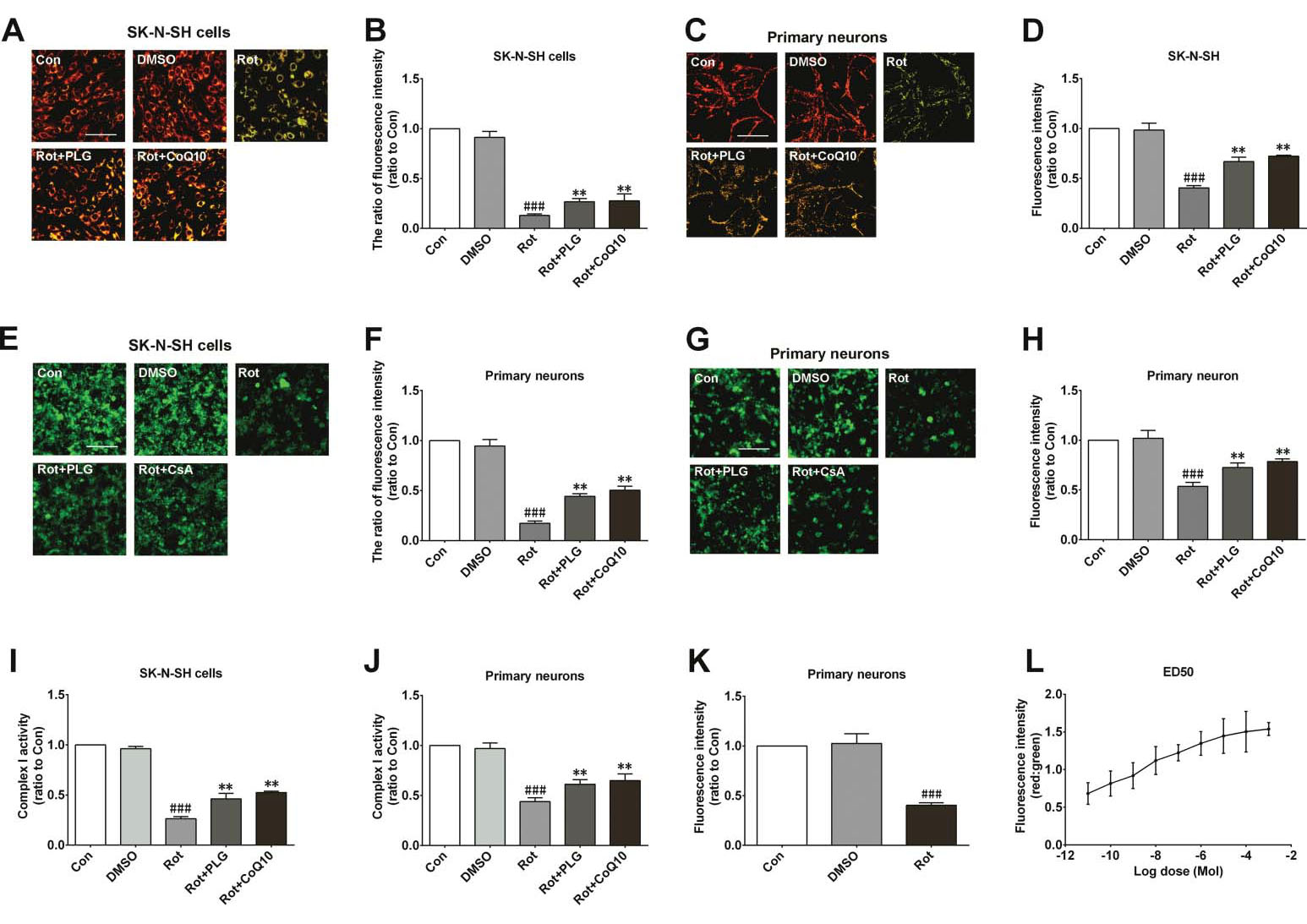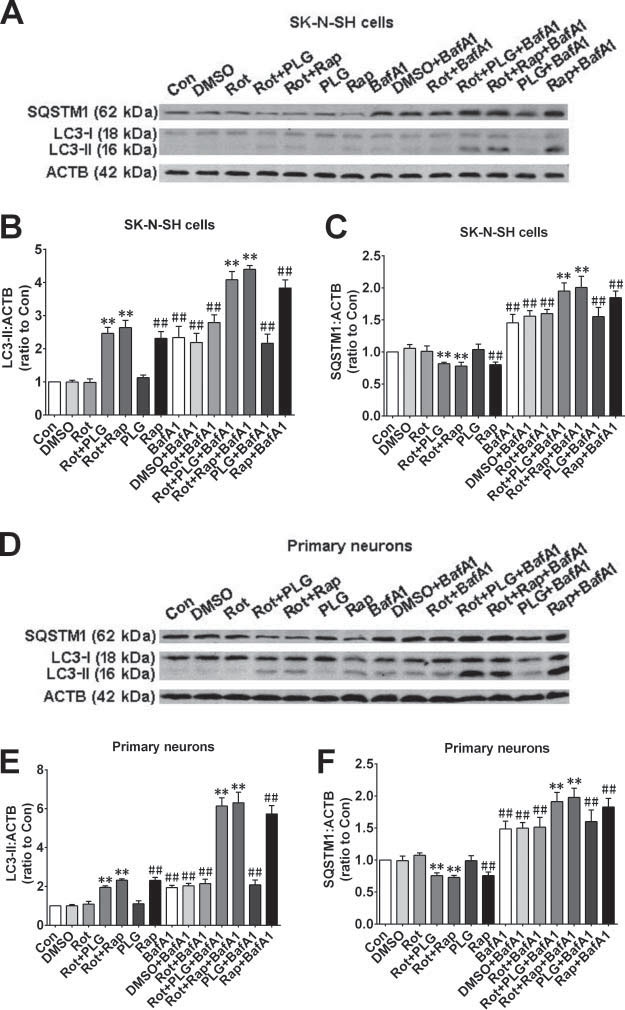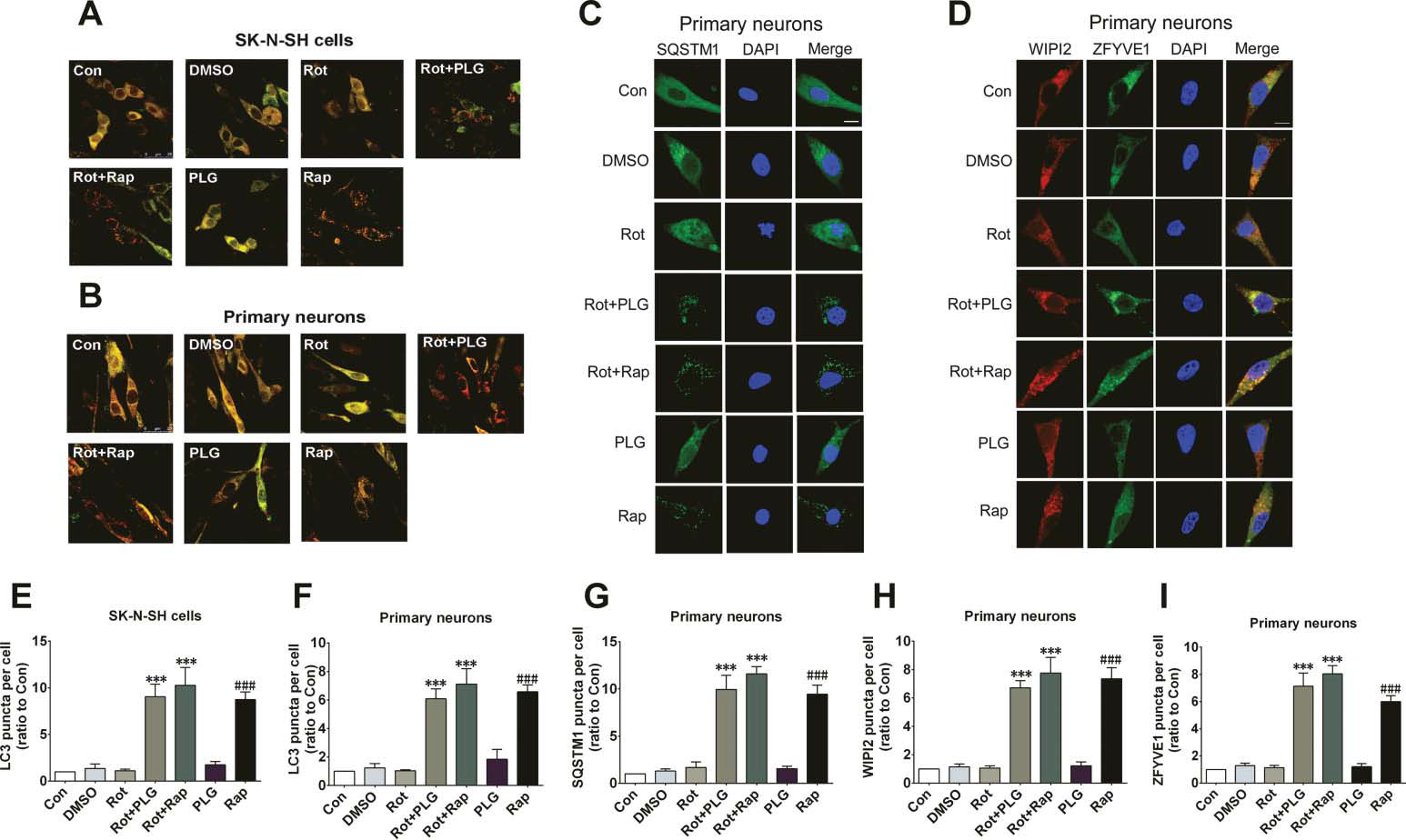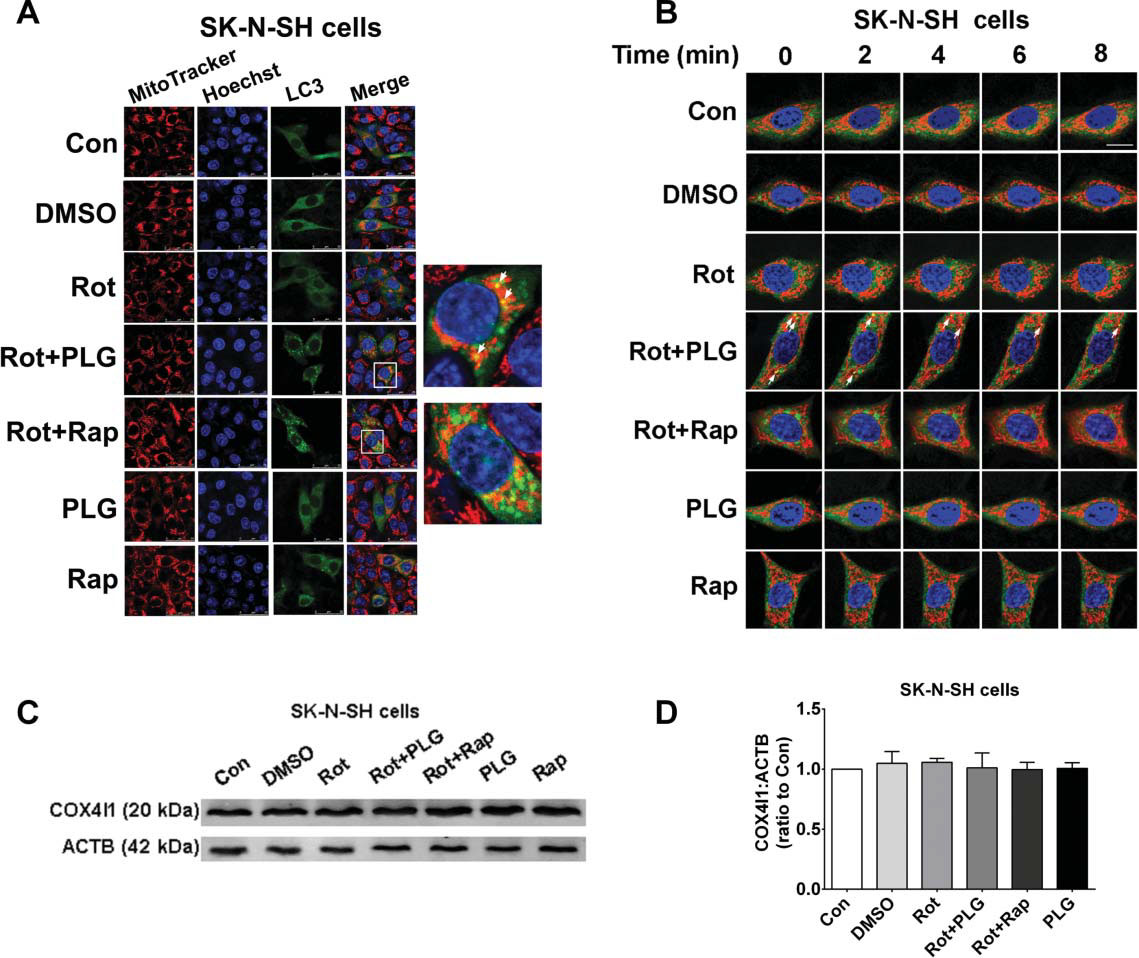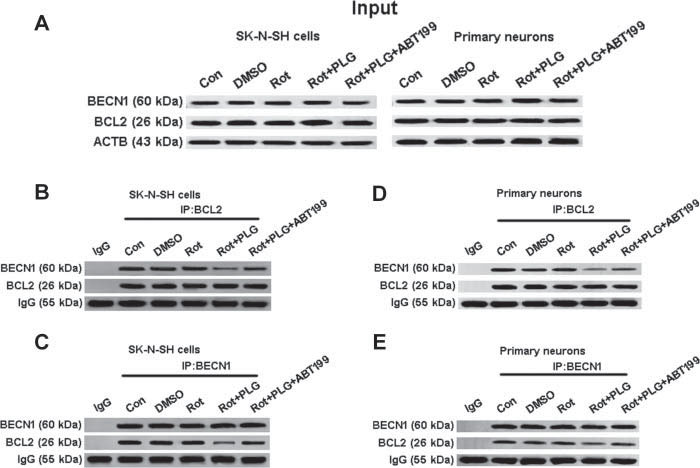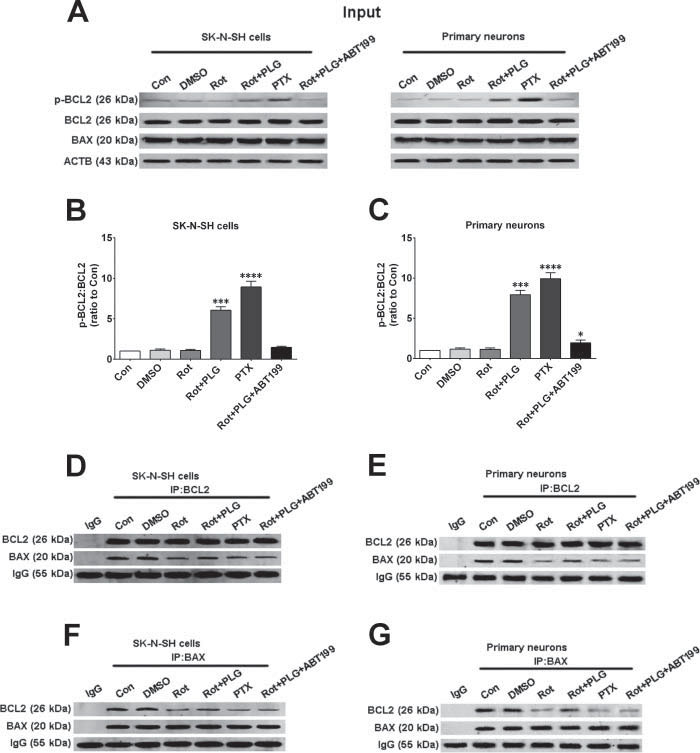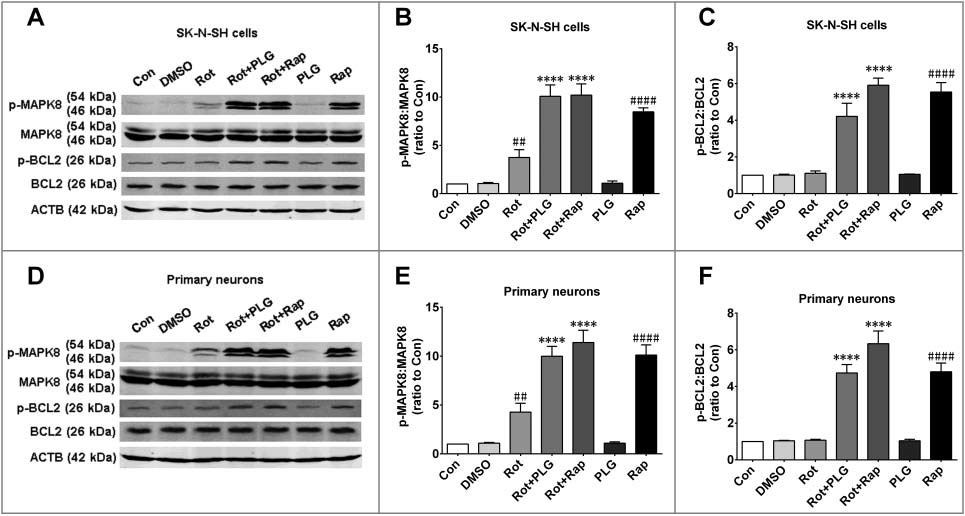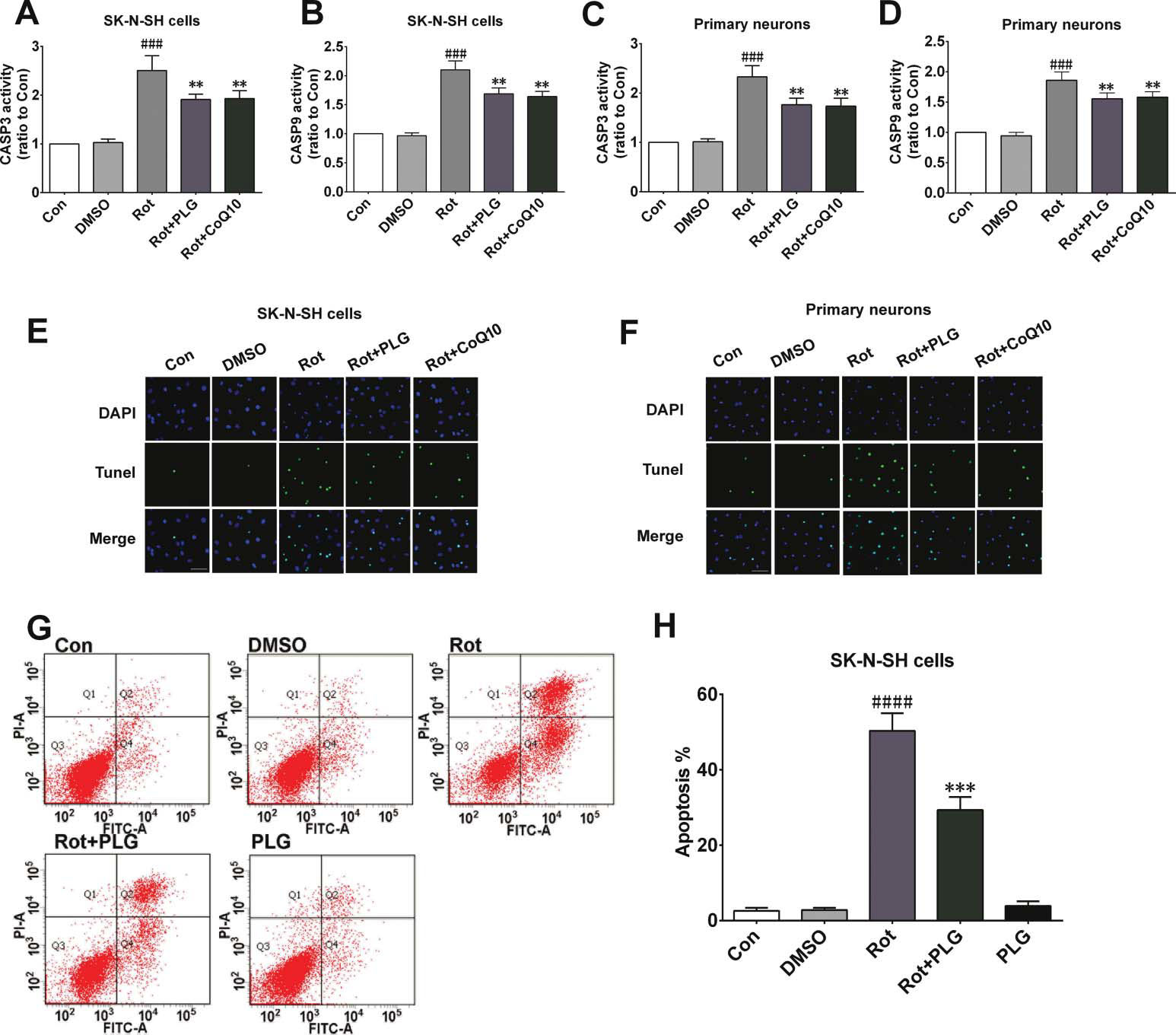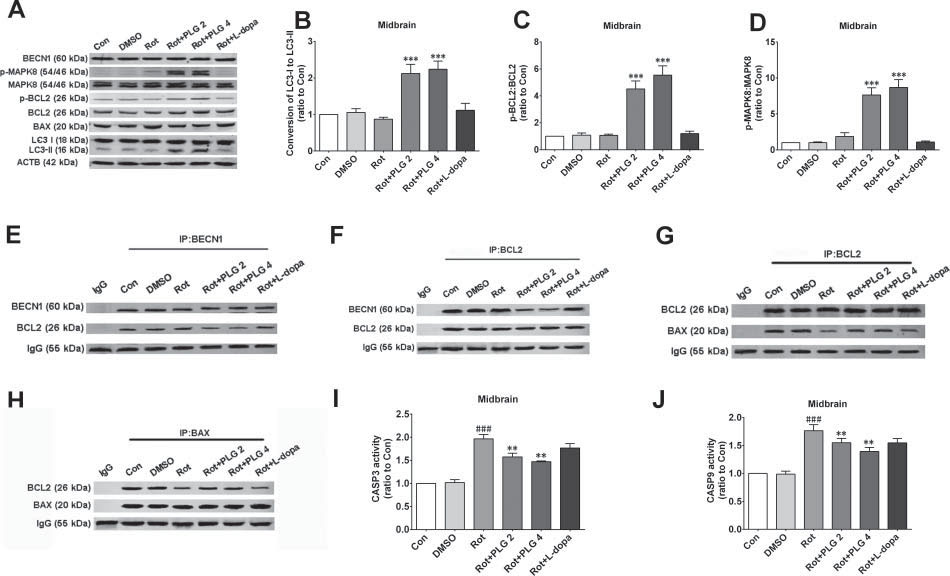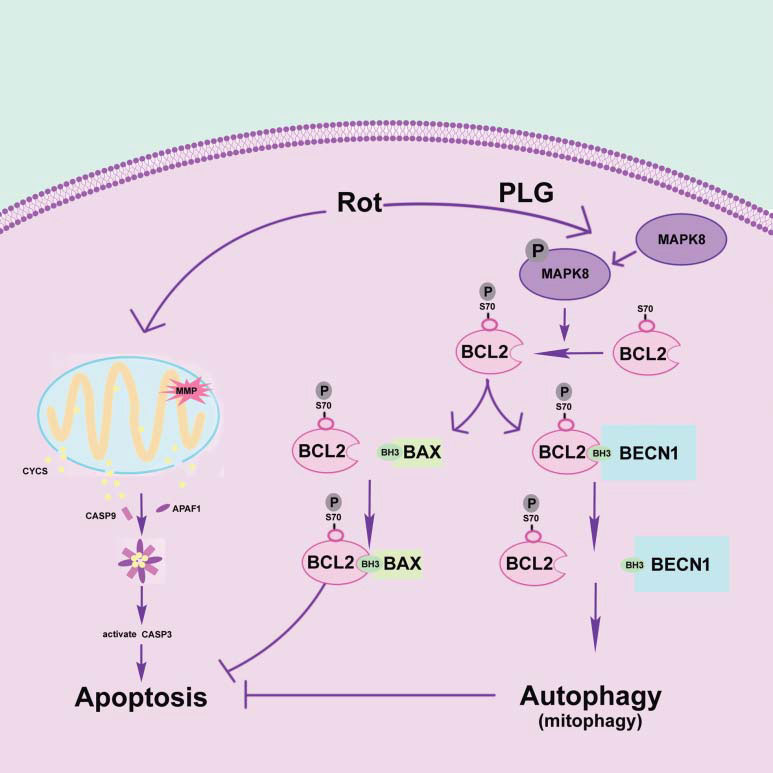Session Information
Date: Saturday, October 6, 2018
Session Title: Parkinson’s Disease: Clinical Trials, Pharmacology And Treatment
Session Time: 1:45pm-3:15pm
Location: Hall 3FG
Objective: Parkinson disease (PD) is the second most common neurodegenerative disorder after Alzheimer disease and there are few treatments currently available. The present study investigated the protective effects of PLG in rotenone-induced PD cell and mouse models.
Background: Apoptosis and macroautophagy/autophagy play critical roles in PD pathogenesis; as such, modulating their balance is a potential treatment strategy. BCL2 (B cell leukemia/lymphoma 2) is a key molecule regulating this balance. PLG is an alkaloid extracted from Piper longum L. that has anti-inflammatory and anticancer effects. Our previous study concerned PLG has protective effects in PD models involve inhibiting mitochondrial dysfunction and apoptosis, although the underlying mechanism is unknown.
Methods: C57BL mice were orally administered rotenone and PLG, motor behavior was evaluated with the rotarod and pole tests. The number of dopaminergic neurons was measured by immunohistochemistry. In cell models, cell viability and cytotoxicity were measured by MTT and LDH assay, and mitochondrial function was evaluated with JC-1 and Calcein AM assay. The interaction of BCL2 and BAX or BECN1 was measured by co-immunoprecipitation to evaluate apoptosis or autophagy.
Results: We found that PLG administration (2 and 4 mg/kg) for 4 weeks attenuated motor deficits in mice and prevented the loss of dopaminergic neurons in the substantia nigra induced by oral administration of rotenone (10 mg/kg) for 6 weeks. PLG improved cell viability and enhanced mitochondrial function in primary neurons and SK-N-SH cells. These protective effects were exerted by inducing BCL2 phosphorylation at Ser70 via MAPK8 activation, which resulted in the dissociation of BCL2 and BECN1 and the stabilization of the BCL2 and BAX heterodimer, consequently enhancing autophagy and inhibiting apoptosis.
Conclusions: Our results demonstrate that PLG exerts therapeutic effects in a rotenone-induced PD models, and restoring the balance between apoptosis and autophagy by targeting BCL2 may be an effective treatment for PD.
References: Liu J, Liu W, Lu Y, Tian H, Duan C, Lu L, Gao G, Wu X, Wang X, Yang H. Piperlongumine restores the balance of autophagy and apoptosis by increasing BCL2 phosphorylation in rotenone-induced Parkinson disease models. Autophagy, 2018, DOI: 10.1080/15548627. 2017. 1390636.
To cite this abstract in AMA style:
J. Liu, H. Yang. PLG restores the balance of autophagy and apoptosis by increasing BCL2 phosphorylation in rotenone-induced Parkinson disease models [abstract]. Mov Disord. 2018; 33 (suppl 2). https://www.mdsabstracts.org/abstract/plg-restores-the-balance-of-autophagy-and-apoptosis-by-increasing-bcl2-phosphorylation-in-rotenone-induced-parkinson-disease-models/. Accessed April 17, 2025.« Back to 2018 International Congress
MDS Abstracts - https://www.mdsabstracts.org/abstract/plg-restores-the-balance-of-autophagy-and-apoptosis-by-increasing-bcl2-phosphorylation-in-rotenone-induced-parkinson-disease-models/

